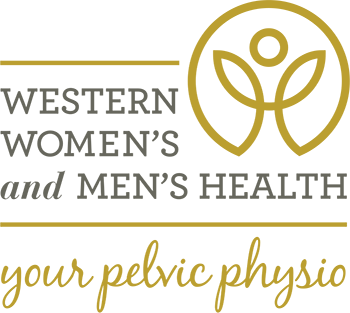
24 Sep What does physiotherapy have to do with breastfeeding?
Have you recently had a baby? If so, congratulations! You may be feeling elated and like you can conquer the world (how good is that?!), but you may also have noticed that having a baby seems to do a bit of a number on your body (just to state the oh, so obvious!). It isn’t just pregnancy that gives your body an overhaul, breastfeeding can also come with a number of challenges that new mothers aren’t always expecting and that can be a downright pain in the bum. We here at Western Women’s and Men’s Health inHoppers Crossing are here to help, so here are 3 ways that your experienced physio can help you during this new and special time of breastfeeding:
1. Relief of neck, shoulder and upper back pain and tightness:
New mothers often find that with a new baby comes a whole lot of neck and back strain and discomfort. The position in which you hold your baby to your breast, coupled with the furniture
you use to either sit or lie down on with your bub, can lead to some awkward posture that ends up leading to pain. Our physios can provide relief in the form of hands on treatment for your joints
and muscles to help soothe that aching feeling. They can also provide information about how to position and support your body and your baby during feeds to help reduce the strain on your neck
and upper back.
2. Treatment for mastitis and breast pain
Is your breast tender and warm? Can you feel hard lumpy places in your breast, or see redness and swelling? Do you feel like you are coming down with a fever or the flu? These are all tell tale
signs of a breast condition known as mastitis. Mastitis occurs when milk becomes static and sits in the ducts for an extended period of time. This can cause an infection and if not treated can turn
into an abscess, both of which require medical attention. If you are feeling unwell and struggling to feed your baby, don’t wait to get treatment as mastitis can progress rapidly and become very
painful so always see your doctor if you are concerned. But mastitis isn’t always due to infection and if you happen to catch these symptoms early our experienced women’s health physios can
provide quick and effective relief through the use of therapeutic ultrasound. Therapeutic ultrasound works by sending extremely high frequency sound waves through the skin and
vibrating the soft tissues underneath. This vibration helps to soften hard lumps and allow for milk to flow more easily. This has an anti inflammatory effect and decreases swelling and pain. If you
are experiencing mastitis and would like to see if therapeutic ultrasound might be the answer, why not book an appointment today?!
3. Exercises to strengthen your body post-pregnancy
The hormones involved in pregnancy work really well to relax your ligaments and allow your body to stretch to make room to grow a baby and allow you to give birth. Good one, hormones!
Unfortunately, this softness and looseness continues after birth as some of the same hormones are involved in breastfeeding. This means that it can be tricky returning to your pre baby workout and you may need to modify how much weight you can lift. Our team have experience working with women from preconception, through pregnancy and into the post natal period. They would be
happy to assess your individual needs and work out an exercise routine that is safe and effective to help you increase your strength after having your baby.
If you have any questions about how a seeing physiotherapist might be helpful to you during your breastfeeding journey please call us today on (03) 8001 2044 to make an appointment. Happy breastfeeding!
